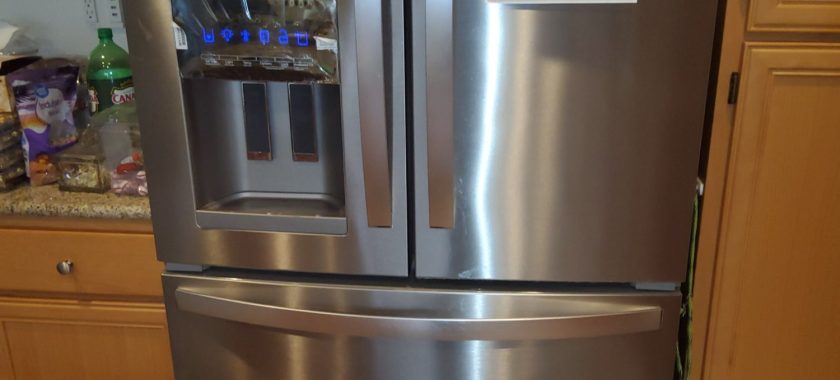When your freezer stops working, it can be a major inconvenience. Not only can it lead to spoiled food and wasted money, but it can also disrupt your daily routine. Understanding the common problems that can cause a freezer to malfunction and knowing how to troubleshoot them can save you time and frustration. Below, we’ll explore some of the most frequent issues and their potential solutions.
⠀
-
Power Supply Issues
⠀
One of the first things to check when your freezer stops working is the power supply. Ensure that the freezer is plugged in securely and that the outlet is functional. Sometimes, the issue may be as simple as a blown fuse or tripped circuit breaker. If the power supply seems fine, try plugging another appliance into the same outlet to verify it’s working.
⠀
Solution: Reset the circuit breaker if necessary and check the power cord for any signs of damage. If the outlet is faulty, you may need to consult an electrician.
⠀
-
Temperature Settings
⠀
It’s easy to accidentally adjust the temperature settings on your freezer, which can lead to inadequate cooling. Ensure the thermostat is set to the recommended temperature, typically around 0°F (-18°C) for freezers.
⠀
Solution: If the temperature settings have been altered, simply adjust them back to the recommended level and monitor the freezer for a few hours to see if the temperature stabilizes.
⠀
-
Door Seal Issues
⠀
A faulty door seal can cause cold air to escape, making it difficult for your freezer to maintain the desired temperature. Inspect the door gasket for any signs of wear, cracks, or dirt that may prevent it from sealing properly.
⠀
Solution: Clean the gasket with warm soapy water to remove any debris. If the gasket is damaged, you may need to replace it to ensure a proper seal.
⠀
-
Blocked Vents
⠀
Freezers require proper air circulation to function efficiently. If the vents are blocked by food items or ice buildup, it can lead to inadequate cooling.
⠀
Solution: Check the interior of the freezer for any obstructions. Rearrange items to allow for better airflow and defrost the freezer if ice accumulation is the issue.
⠀
-
Faulty Thermostat
⠀
If your freezer is not maintaining the correct temperature despite setting adjustments, the thermostat may be malfunctioning. This component is crucial for regulating the temperature.
⠀
Solution: You can test the thermostat using a multimeter to check for continuity. If it’s faulty, replacing it can resolve the temperature issues.
⠀
-
Dirty Condenser Coils
⠀
Over time, dust and debris can accumulate on the condenser coils, making it difficult for your freezer to release heat. This can lead to overheating and inadequate cooling.
⠀
Solution: Regularly clean the condenser coils, typically located at the back or bottom of the appliance. Use a vacuum or brush to remove dust and dirt, which can enhance the freezer’s efficiency.
-
Defrost Drain Blockage
⠀
If your freezer has a defrost drain and it becomes clogged, water can build up and freeze, leading to further cooling issues.
⠀
Solution: Locate the defrost drain and check for any blockages. Clear any debris or ice buildup to allow for proper drainage.
⠀
-
Compressor Issues
⠀
The compressor is a vital component responsible for circulating refrigerant throughout the freezer. If the compressor fails, it can result in a complete loss of cooling.
⠀
Solution: If you suspect a compressor issue, it’s often best to consult a professional. They can test the compressor and determine whether it needs to be repaired or replaced.
⠀
-
Refrigerant Leaks
⠀
Refrigerant is essential for cooling, and a leak can lead to insufficient cooling and increased energy costs. Signs of a refrigerant leak may include hissing noises or frost buildup in unusual areas.
⠀
Solution: If you suspect a refrigerant leak, it’s crucial to contact a professional technician to handle this issue. Handling refrigerants requires special training and equipment.
⠀
-
Aging Appliance
⠀
If your freezer is old and has been experiencing multiple issues, it may be time to consider replacement. Older models can become less efficient over time and may not be worth the cost of repairs.
⠀
Solution: Weigh the costs of repairs against the cost of a new freezer. Investing in a newer, more efficient model may save you money in the long run.
⠀
A malfunctioning freezer can be frustrating, but by understanding the common problems and potential solutions, you can troubleshoot effectively. If you’ve tried these solutions and your freezer is still not working, it may be time to call in a professional. For reliable and expert appliance repair services, contact Chula Vista Appliance Repair Company. Our team is ready to help you get your freezer back to optimal working condition so you can avoid food spoilage and enjoy peace of mind!
Contact us
(619) 880-5508


